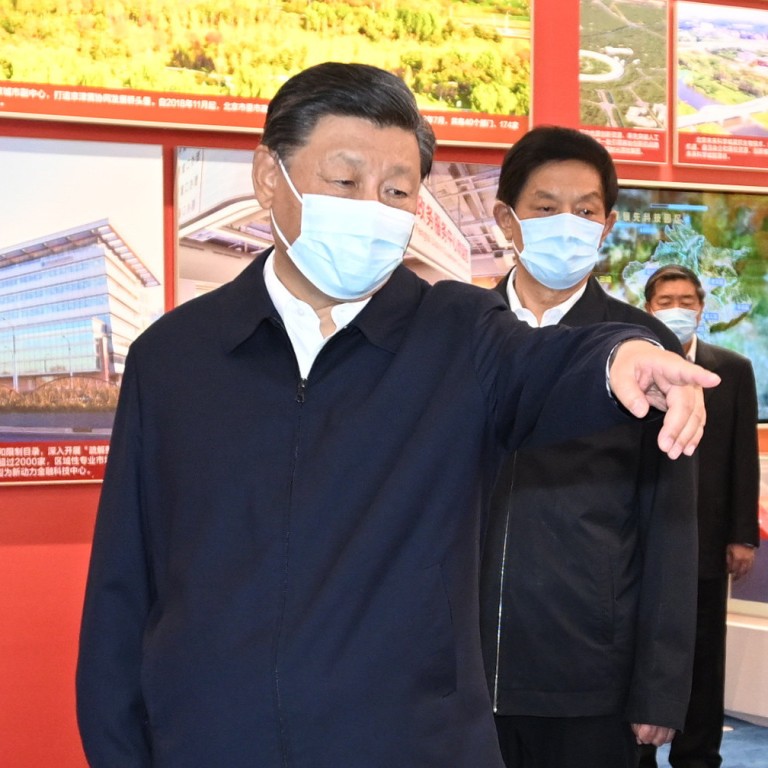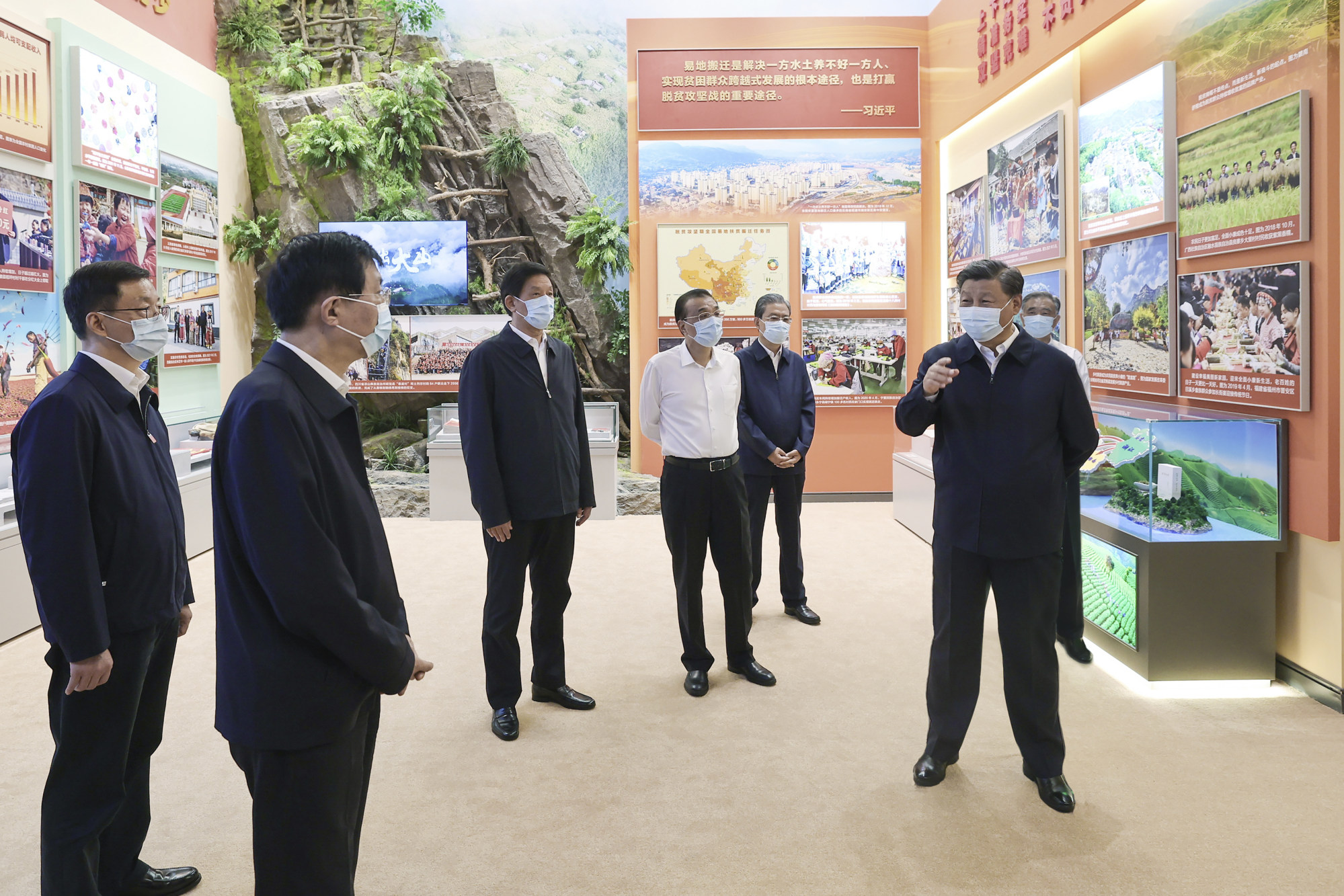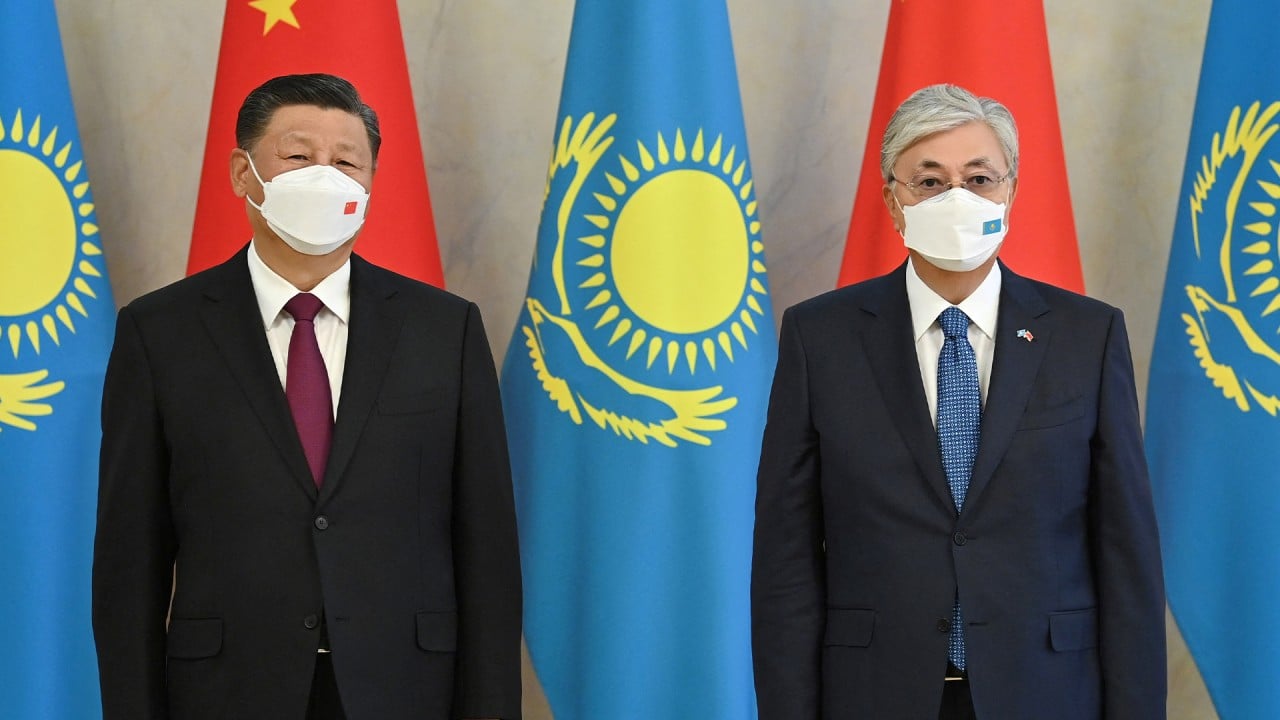
China’s Xi Jinping back in the public spotlight – in person and in policy
- Xi visits an exhibition in Beijing on the country’s achievements during his two terms
- Communist Party announces publication of series of books on president’s signature theme in office
Xi visited an exhibition in Beijing on the country’s achievements during his past two terms.
The party has led the country through various political, economic, ideological challenges and natural disasters in the past 10 years, state news agency Xinhua quoted him as saying at the exhibition.
He added that Chinese authorities should “broadly propagate” key successes since 2012, the year Xi took the party’s helm.
Xi was joined by dozens of China’s top officials, including all Beijing-based members of the 25-strong Politburo, the party’s decision-making body, Xinhua said.
Also on Tuesday, the party announced it would publish a “library” of China’s past pursuit of “national rejuvenation”, in an apparent attempt to shore up support for Xi’s policy goals.
He said the country had “suffered unprecedented catastrophes in its modern history” and since the party was founded, it had “found the right path to realise the great rejuvenation of the Chinese nation”.
“Prospects for the great rejuvenation of the Chinese nation are brighter than ever before.”
He added that the literature would help determine the party’s achievements and missions.

Xi said the library was “a major cultural project” approved by the party’s Central Committee and would help bolster confidence in the country’s path.
The first three volumes of the series will be published in the coming days, according to Xinhua.
The publication comes in the countdown to the twice-a-decade congress, which will usher in changes to the party’s charter, further raising Xi’s personal status as he prepares to form a new top team to rule over China for the next five years.
Deng Yuwen, a former deputy editor of Study Times, the Central Party School’s official newspaper, said there was no precedent in the past three decades for publishing such a major compilation on the party’s long-term policy goal ahead of a congress.
“Previous practice was to collect the leader’s speeches and compile a series of selected works, or wenxuan, upon their retirement. It is very rare to see such a huge publishing effort on just one policy goal,” said Deng, who is now an independent scholar and researcher at the Centre for China Analysis and Strategy in the United States.
“It is part of the effort to justify Xi’s third term as the chosen one, the helmsman, that China needs now to navigate the uncharted waters.
“Xi called Mao’s time the ‘revolution period’, Deng’s the ‘building period’, and Jiang and Hu’s the ‘reform period’. But he calls his term a whole new ‘era’.
“In the Chinese context, ‘era’ comes with the meaning of a generational difference, that is, while the previous three periods form the old era, Xi wants to have his own era marked by very distinct characteristics.”


